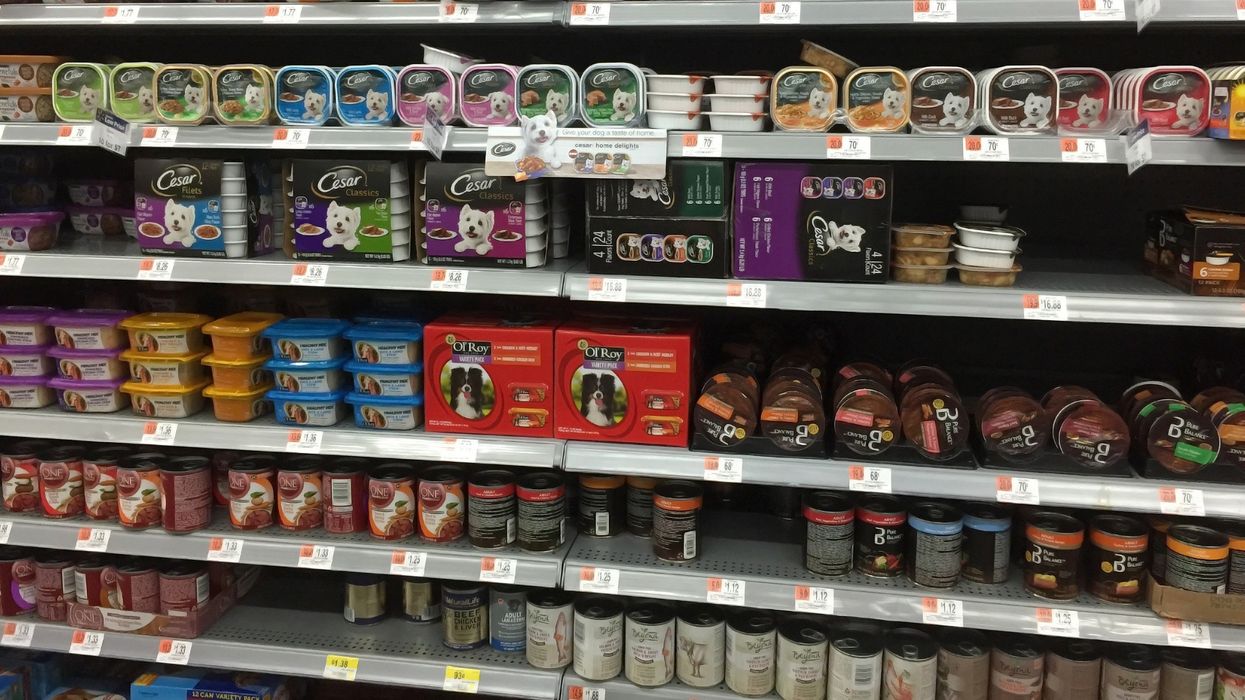Public Health Agency of Canada is warning of a Salmonella outbreak related to dog food
There's advice to reduce your risk of getting sick.

Dog food on store shelves.
The Public Health Agency of Canada (PHAC) issued a warning for a Salmonella outbreak related to dog food and treats.
Illnesses have been confirmed in three provinces and one territory, so here's what you need to know.
PHAC shared a new public health notice about a Salmonella outbreak in Canada on September 15, 2025.
The outbreak investigation is ongoing, so the public health notice will be updated as the situation evolves.
Currently, there are 27 laboratory-confirmed cases of Salmonella Oranienburg illness linked to this outbreak, including 13 in Alberta, 12 in B.C., one in Ontario and one in the Northwest Territories.
People became sick between mid-February and mid-August of this year.
Many reported handling dog food and treats before becoming ill, including kibble, dehydrated treats and freeze-dried treats.
But a single common dog food or treat supplier hasn't been identified.
PHAC said that dog food and treats can be contaminated with bacteria that can make people and dogs sick.
You can get sick through contact with a dog, their food or their treats.
Even if dogs don't show any signs of illness, they can still infect people who come into contact with them or their environment.
Also, people who are infected with Salmonella bacteria can spread it to other people for several days to several weeks, regardless of whether they have symptoms or not.
Those at higher risk for serious illness include older adults, young children, people who are pregnant and people with weakened immune systems.
PHAC is advising Canadians to "practice good hand hygiene and frequent handwashing after contact with dogs, their food and treats" to prevent illness.
To reduce your risk of getting sick, you should:
- wash your hands thoroughly with soap and water immediately after handling any type of dog food or treat
- teach children to wash their hands thoroughly, with soap and water, every time after touching dogs, their food or treats
- wash and sanitize any containers, utensils and surfaces that have come into contact with dog food or treats before using them again
- use dedicated dishes and utensils to serve your dog and wash them separately from other dishes and utensils
- store all dog food and treats away from where human food is stored or prepared and away from the reach of young children
- follow storage instructions found on the packaging, including proper refrigeration and freezing if needed, to prevent them from becoming spoiled
- read the labels on dog food and treats to learn about the ingredients, the product's expiry date, and if the food is cooked or raw
- wash your hands after contact with a dog and after handling their waste
Symptoms include chills, a fever, nausea, diarrhea, vomiting, stomach cramps, and a sudden headache.
You might not get sick, but if you do, symptoms usually start six to 72 hours after exposure.
Most symptoms end within four to seven days.
PHAC is also investigating separate Salmonella outbreaks related to various salami and cacciatore products and various pistachios and pistachio-containing products.
This article's cover image was used for illustrative purposes only.